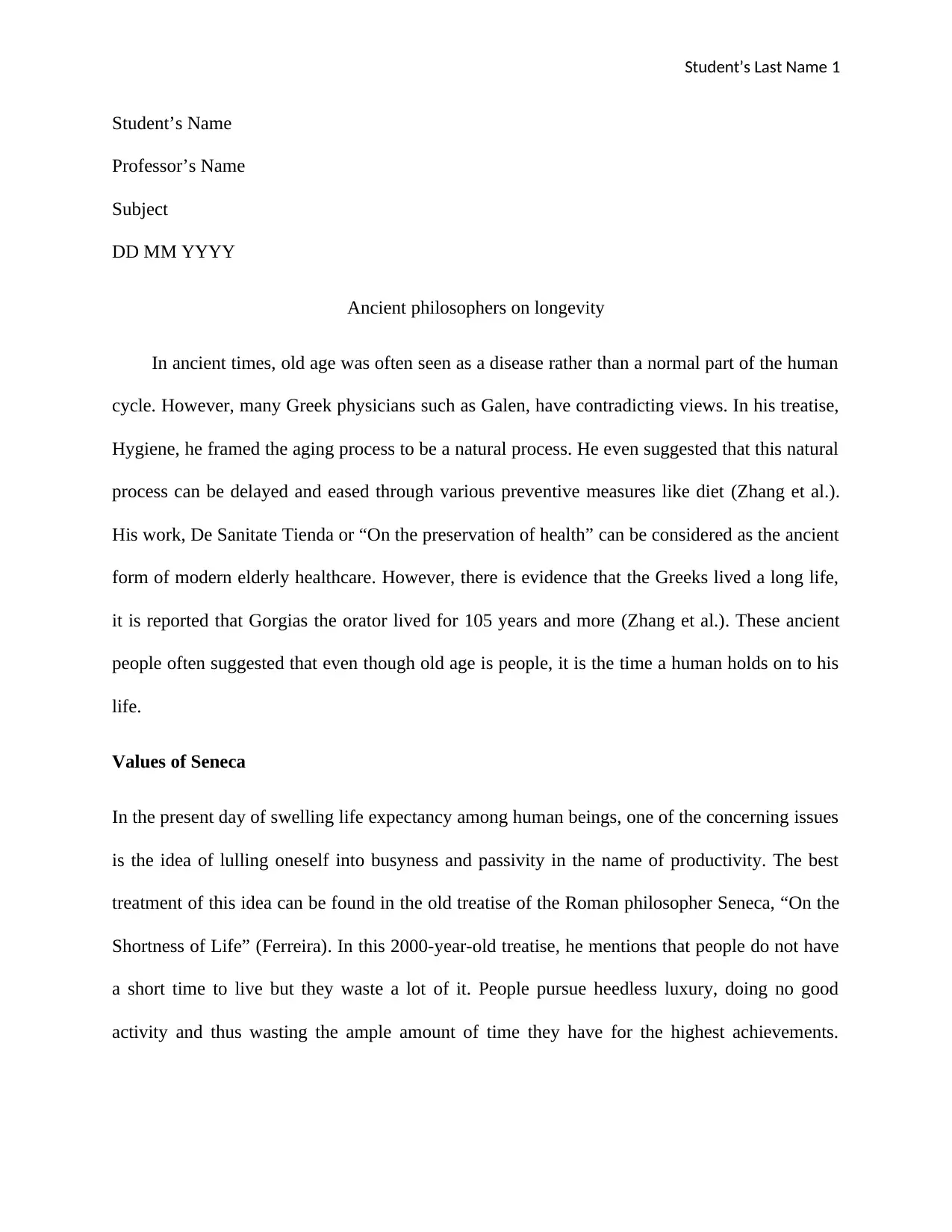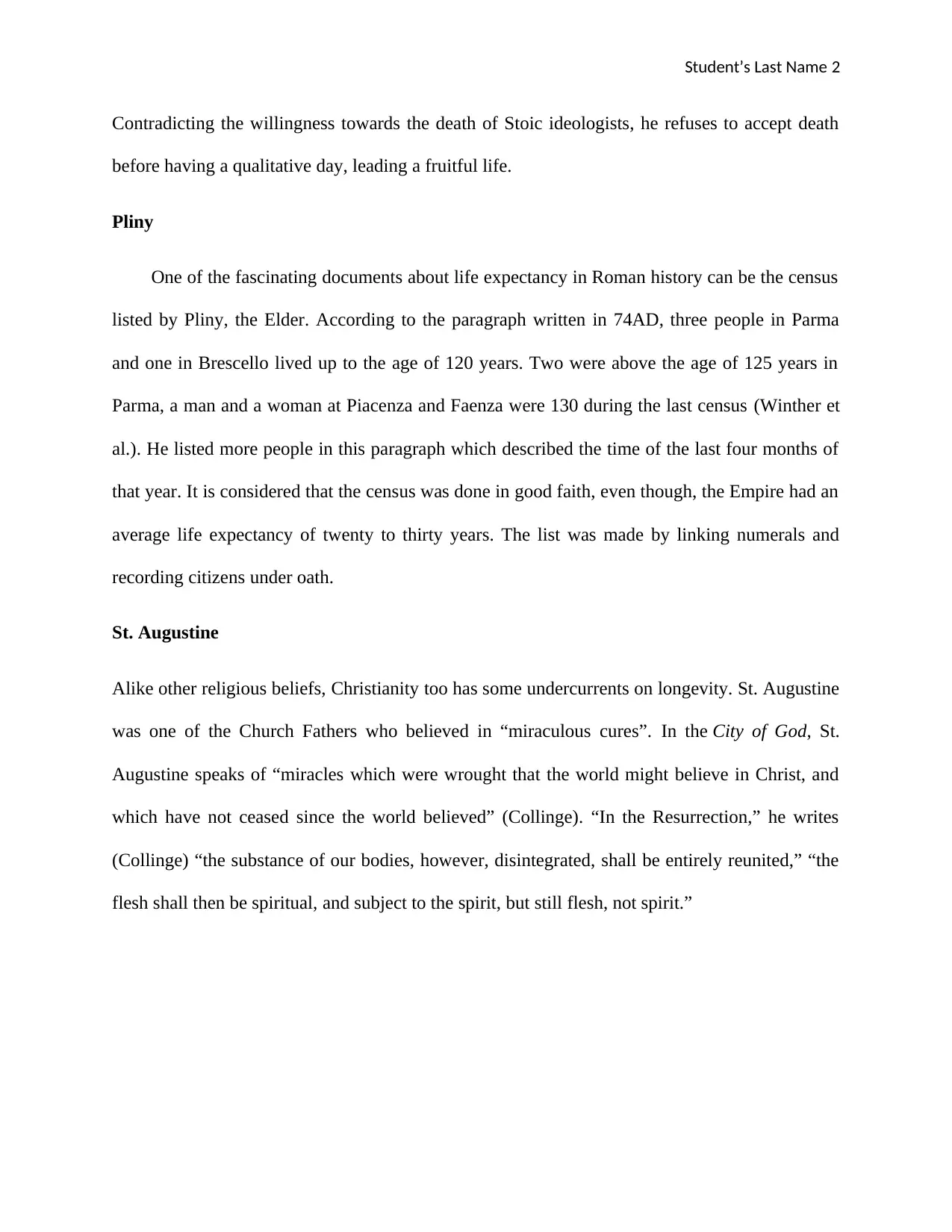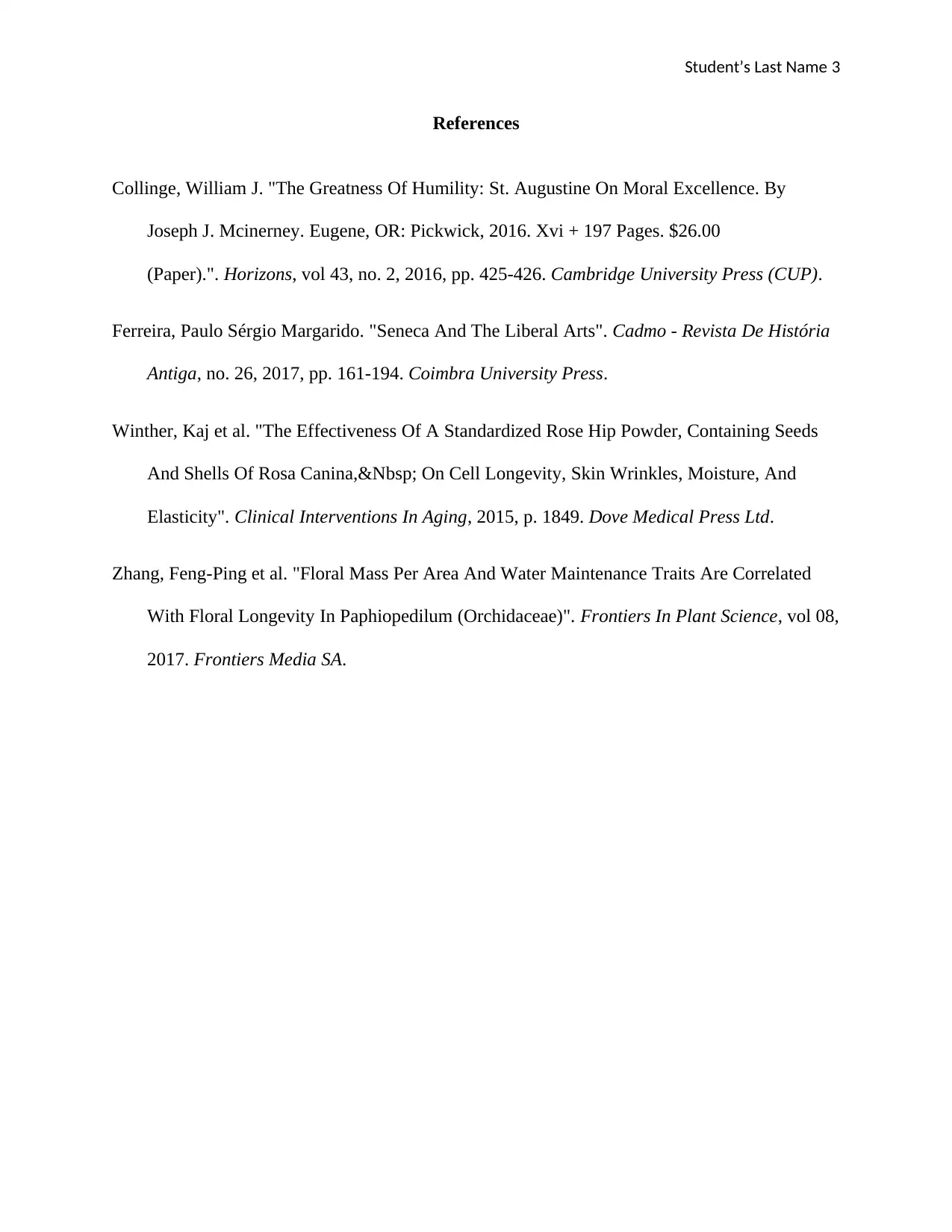Ancient Philosophers' Perspectives on Human Lifespan and Aging
VerifiedAdded on 2022/10/19
|3
|776
|500
Essay
AI Summary
This essay delves into the perspectives of ancient philosophers on the concept of longevity. It examines the contrasting views of Greek physicians like Galen, who framed aging as a natural process that could be managed through diet and preventive measures, and the historical context of long lifespans reported during those times. The essay then explores the values of Seneca, who emphasized the importance of living a meaningful life and not wasting time, contrasting with Stoic ideologies. Furthermore, it discusses Pliny the Elder's census data, providing insights into Roman life expectancy, and touches upon St. Augustine's Christian perspective on longevity and miraculous cures. The essay offers a comprehensive overview of how different ancient thinkers and cultures approached and understood the concept of a long and healthy life, and the historical context surrounding it.
1 out of 3





![[object Object]](/_next/static/media/star-bottom.7253800d.svg)